Picture this: You're in a client meeting, and your agency partner starts throwing around acronyms like confetti at New Year's. "We need to focus on your AEO strategy," they say confidently. "But first, let's optimize for GEO, and don't forget about LLMO integration with your existing AISO framework."
Sound familiar? If you're feeling like you need a translator just to understand what your marketing team is talking about, you're not alone.
The digital marketing world has exploded with new acronyms faster than a startup burns through venture capital. AIO, AEO, GEO, AISO, LLMO—it's like alphabet soup, but less nutritious and way more expensive.
Here's the truth nobody wants to tell you: These aren't revolutionary new marketing disciplines. They're all just SEO with a fresh coat of paint.
Don't get me wrong—the underlying strategies have evolved significantly. AI has changed how search works, and smart marketers are adapting. But the proliferation of acronyms? That's more about agencies trying to sound cutting-edge than actually delivering cutting-edge results.
In this article, we'll decode each of these mysterious acronyms, show you what they actually mean, and most importantly, help you focus on what really matters for your business growth. By the end, you'll cut through the buzzword bingo and understand exactly what you need to succeed in the AI-powered search landscape.
The Acronym Explosion: Why Everyone's Inventing New SEO Terms

Before we dive into what each acronym means, let's address the elephant in the room: Why are there suddenly so many new terms for what is essentially search optimization?
The answer is part innovation, part marketing, and part genuine confusion about a rapidly evolving landscape.
The Real Reasons Behind the Rebrand
AI Changed Everything (Sort Of) When ChatGPT launched and Google introduced AI Overviews, the search landscape genuinely shifted. Suddenly, users weren't just clicking blue links. Instead, they were getting direct answers from AI systems. Traditional SEO tactics needed updates, and the industry responded by creating new acronyms.
Agency Differentiation Let's be honest: the digital marketing space is crowded. When every agency offers "SEO services," how do you stand out? Simple—you invent a new acronym and position yourself as the expert in "GEO" or "LLMO." It's basic marketing psychology.
The Rand Fishkin Reality Check SEO expert Rand Fishkin has voiced criticism against the creation of numerous new SEO acronyms, advocating instead for "Search Everywhere Optimization" as a more encompassing and less confusing term. His argument? We're creating unnecessary confusion when what businesses really need is clarity.
The Fragmentation Factor Search isn't just happening on Google anymore. People are asking questions on ChatGPT, getting recommendations on TikTok, and finding answers on Reddit. As one expert noted, "Search isn't a platform. It's a behavior – and it's fracturing across AI, social, and SERPs."
Decoding the Acronym Alphabet: What Each Term Actually Means
Let's break down each acronym and see what's really hiding behind the fancy terminology.
AIO (AI Optimization / Artificial Intelligence Optimization)
What They Say It Is: AI optimization (AIO) focuses on optimizing content for artificial intelligence systems and machine learning algorithms, leveraging AI tools to create and enhance content for both AI-driven platforms and traditional search.
What It Really Is: Content optimization with a focus on how AI systems understand and process information. This includes writing in clear, structured formats and using AI tools to improve content quality.
The Bottom Line: It's content optimization for the AI age. Basically, writing better content that both humans and machines can understand easily.
AEO (Answer Engine Optimization)
What They Say It Is: AEO specifically targets AI-powered systems that provide direct answers rather than traditional search result listings, focusing on featured snippets and voice search results.
What It Really Is: Optimizing content to appear in featured snippets, voice search results, and AI-generated answer boxes. This means structuring content to directly answer specific questions.
The Bottom Line: It's a featured snippet optimization with a new name. The goal is getting your content selected as the "answer" rather than just ranking in position 1-10.
GEO (Generative Engine Optimization)
What They Say It Is: GEO is designed specifically for generative AI platforms that create responses rather than curating existing content, focusing on AI-driven search engines and generative models.
What It Really Is: Optimizing content so that when AI systems like ChatGPT or Google's Gemini generate responses, they're more likely to reference and cite your content as a source.
The Bottom Line: It's about becoming a trusted source that AI systems quote when generating answers. Think of it as "authority building for AI."
AISO (AI Search Optimization)
What They Say It Is: AISO focuses on semantic relevance, natural language, and user intent, moving away from traditional SEO tactics like keyword stuffing to ensure AI platforms mention or cite your brand.
What It Really Is: SEO that prioritizes natural language and semantic understanding over exact keyword matching, optimized for how AI systems interpret content.
The Bottom Line: It's semantic SEO, focusing on topics and intent rather than exact keyword matches.
LLMO (Large Language Model Optimization)
What They Say It Is: LLMO aims to influence the output of large language models like ChatGPT or Perplexity, encouraging them to include your brand in their responses through strategic content optimization.
What It Really Is: Creating content that's structured and authoritative enough that when LLMs generate responses, they naturally reference your brand or expertise.
The Bottom Line: LLM optimization is about becoming the go-to source that AI systems trust and cite consistently.
The Overlap Analysis: Three Names for the Same Idea

Here's what the industry doesn't want you to realize: Many experts perceive terms like GEO, LLMO, and AEO as essentially "three names for the same idea"—enhancing how a brand is surfaced and represented in AI-generated responses.
Let's look at what they all actually focus on:
|
Core Focus |
AIO |
AEO |
GEO |
AISO |
LLMO |
|
Natural Language Content |
✓ |
✓ |
✓ |
✓ |
✓ |
|
Structured Data Implementation |
✓ |
✓ |
✓ |
✓ |
✓ |
|
Authority Building |
✓ |
✓ |
✓ |
✓ |
✓ |
|
Question-Answer Format |
✓ |
✓ |
✓ |
✓ |
✓ |
|
AI Citation Goals |
✓ |
✓ |
✓ |
✓ |
✓ |
|
Semantic Relevance |
✓ |
✓ |
✓ |
✓ |
✓ |
Notice a pattern? They're all optimizing for the same fundamental outcomes using virtually identical strategies.
What Actually Matters: The Core Strategies That Work Across All Platforms
Instead of getting lost in acronym land, let's focus on what actually moves the needle for your business. Here are the fundamental strategies that work regardless of whether you call it AIO, AEO, GEO, AISO, LLMO, or just good old-fashioned SEO:
1. Create Authority-Driven Content
AI models prioritize authoritative sources, weighting them higher for citations. LLMs only draw information from what they have been trained on or what they can retrieve from sources they already trust. This means building genuine expertise and demonstrating it through your content becomes paramount.
For SaaS companies, especially, this translates to:
- Documenting real implementation experiences with actual metrics
- Sharing detailed case studies that include both successes and failures
- Positioning team members as thought leaders through speaking engagements
- Creating original research that others in your industry will want to cite
- Building relationships with industry publications and journalists
When we helped Ringy grow their organic traffic by 150x, we didn't just write about SEO tactics. We documented the specific strategies, shared actual traffic numbers, and explained the reasoning behind each decision. That authenticity is what makes content cite-worthy in the AI era.
2. Structure Content for Easy Extraction
AI systems need to quickly understand and extract information from your content. The easier you make it, the more likely you are to be cited. This means leading with direct answers to questions, using clear H2 and H3 headings structured as questions, including FAQ sections with concise answers, and implementing proper schema markup.
The key is writing like you're teaching someone who needs to explain your topic to others in 30 seconds. That's essentially what AI systems are doing when they generate responses.
3. Focus on Natural Language and User Intent
Only 5.4% of Google AIOs contained an exact query match in one large-scale study. AI's superpower is understanding the context of natural language, which means the old approach of exact keyword matching is becoming less relevant.
This shift toward natural language optimization represents a fundamental change in how we approach content creation. Rather than stuffing specific keywords into content, successful optimization now requires understanding the underlying questions users are really asking and addressing those comprehensively.
4. Build Distributed Authority
Reddit is a top citation source for Perplexity (46.7%) and Google AI Overviews (21%), indicating that active engagement with these platforms can play a crucial role in LLM search optimization. This isn't about gaming the system—it's about genuinely becoming a recognized expert in your field across multiple platforms.
Building distributed authority means:
- Engaging actively in relevant online communities like Reddit and industry forums
- Contributing valuable insights to industry discussions without being promotional
- Getting quoted in industry publications and appearing on relevant podcasts
- Creating content that naturally gets shared and referenced across different platforms
- Participating in speaking opportunities at industry conferences and events
The SaaS Success Story: How We Applied These Principles

Let me share a real example of how these principles work in practice, using our client Ringy as a case study.
Ringy came to us as a startup CRM with virtually no organic presence, competing against established players like HubSpot and Salesforce in a crowded market. Instead of chasing the latest acronym trends, we focused on fundamental optimization strategies.
We built authority by creating in-depth guides based on real CRM implementation experience, published case studies with actual client results, and positioned the CEO as a thought leader through speaking engagements. Our content structure included comprehensive how-to guides answering specific CRM questions, clear question-based headings throughout all content, and detailed schema markup for all major content types.
Most importantly, we addressed real problems sales teams face daily using conversational language that matched how users actually search, creating content around long-tail, intent-driven queries rather than broad, competitive terms.
The results speak for themselves:
- 150x growth in organic traffic from 100 to 15,000+ monthly visits
- Website expansion from 15 to 480+ high-performing pages
- Consistent daily lead generation through organic channels
- Significantly reduced customer acquisition costs
The kicker? We achieved this using fundamental SEO principles, no special "AEO" or "GEO" magic required. This success story illustrates how the future of SEO is built on solid foundations rather than trendy acronyms.
Why Agencies Love Acronyms (And Why You Should Be Skeptical)
Let's have an honest conversation about why the acronym explosion happened and what it means for you as a business owner.
When every agency offers "SEO," creating a new category like "GEO" helps agencies stand out. It's easier to sell "cutting-edge Generative Engine Optimization" than "really good SEO." New, complex-sounding services often command higher prices, and being the first agency to offer "AEO services" in your market can position you as an innovator, even if the underlying work is similar to what you've always done.
Red Flags to Watch For
When evaluating marketing partners, be cautious if they:
- Focus more on acronyms than results—ask about specific outcomes, not just methodology
- Can't explain the strategy in simple terms—complexity often masks lack of understanding
- Promise revolutionary new approaches that completely replace traditional SEO
- Dismiss proven optimization principles as "outdated" without providing alternatives
- Seem more interested in selling you on their proprietary methodology than your business goals
Green Flags of Quality Partners
Look for agencies that focus on your business outcomes first, explain strategies in clear language, show specific examples of their work and results, and acknowledge that good optimization builds on proven principles.
Many businesses struggle with why their brand is invisible to AI search, but the solution isn't necessarily adopting a new acronym—it's implementing proven strategies adapted for AI systems.
Real-World Application: What This Means for Different Business Types

The beauty of focusing on fundamental principles rather than acronyms is that the core strategies adapt well across different business models and industries.
For SaaS Companies
SaaS businesses benefit most from creating comprehensive product comparison content, documenting detailed implementation guides based on real experience, and building thought leadership through problem-solving content. The key is optimizing for both technical and business decision-maker queries, recognizing that different stakeholders in the buying process have different information needs.
Understanding the hidden costs of AI integration can also help SaaS companies position their solutions more effectively in an AI-driven marketplace.
For Ecommerce Brands
Ecommerce optimization in the AI era focuses on developing detailed product information and specifications, creating buying guides that address common customer questions, and building trust through transparent reviews and testimonials. The goal is optimizing for product discovery across all platforms where customers might encounter AI-generated recommendations.
Modern ecommerce success increasingly depends on AI-driven personalization and understanding how AI is transforming online retail.
For B2B Businesses
B2B companies should focus on establishing expertise through detailed case studies, creating educational content around industry challenges, building relationships with industry publications and experts, and optimizing for both informational and commercial intent queries.
The shift toward AI-powered content creation also presents opportunities for B2B companies to scale their content efforts. Understanding how AI is revolutionizing content strategy can help B2B businesses stay competitive.
Measuring Success in the AI Era
One area where the "new" approaches do offer value is in measurement. The AI era requires some different success metrics beyond traditional rankings and traffic.
Traditional metrics like organic traffic growth, keyword ranking improvements, conversion rate optimization, and backlink acquisition from quality sources remain important. However, new metrics become equally valuable:
- AI citation frequency (how often your brand is mentioned in AI-generated responses)
- Share of voice in AI platforms compared to competitors
- Zero-click brand exposure that builds awareness without direct clicks
- Intent-qualified traffic from visitors who arrive more informed and closer to conversion
For measuring AI visibility, this includes manual testing across multiple AI platforms, using a specialized generative engine optimization tool like CheckThat or Writesonic's GEO platform, and tracking brand mentions across various AI systems with an LLM rank checker like WorkDuo. Traditional metrics still require Google Search Console for search performance, analytics platforms for traffic and conversion tracking, and SEO tools like Ahrefs or SEMrush for comprehensive tracking.
The following table outlines the evolution of success metrics:
|
Traditional SEO Metrics |
AI-Era Additional Metrics |
Measurement Approach |
|
Organic Traffic Growth |
AI Citation Frequency |
Google Analytics + Manual AI Testing |
|
Keyword Rankings |
Share of Voice in AI |
SEO Tools + AI Monitoring Tools |
|
Conversion Rates |
Zero-Click Brand Exposure |
Analytics + Brand Mention Tracking |
|
Backlink Quality |
Intent-Qualified Traffic |
Link Analysis + Conversion Quality Analysis |
The Future-Proof Approach: Search Everywhere Optimization

Instead of chasing the latest acronym, let's talk about a more sustainable approach to optimization in the AI era.
At Roketto, we believe in what Rand Fishkin calls "Search Everywhere Optimization"—recognizing that users are finding information across multiple platforms and optimizing for that reality. This means developing a platform-agnostic content strategy that works whether it's found on Google, ChatGPT, or Reddit, building authority across channels to become a trusted source everywhere your audience looks for information, maintaining technical excellence as a foundation to ensure content is accessible to all types of crawlers and AI systems, and always taking a user-first approach by optimizing for human value first, technical systems second.
For those interested in diving deeper into the nuances between different optimization approaches, we've written a comprehensive comparison of GEO vs AIO that explores how these methodologies differ in practice.
Practical Next Steps: What to Focus on Right Now
Now that we've cut through the acronym confusion, here's what you should actually focus on, broken down into manageable phases.
Phase 1: Foundation Building (This Month)
- Audit your current content structure by reviewing your top 10 pages for clear question-answer formatting
- Implement basic schema markup by adding Organization schema to your homepage and FAQ schema where relevant
- Start manual AI testing by searching for your key topics on ChatGPT, Perplexity, and Google AI
- Identify content gaps where your expertise could be better represented in AI responses
- Review competitor presence in AI-generated answers to understand the competitive landscape
Phase 2: Content Optimization (Next 3 Months)
Focus on content optimization for natural language by rewriting key pages to address user intent more directly, creating comprehensive guides that answer related questions, and developing content clusters around your main topics. Launch an authority building campaign by identifying key industry publications for guest posting, starting to engage in relevant online communities, and creating original research or data that others will want to cite.
Handle technical optimization by:
- Ensuring fast page speeds across all devices
- Implementing comprehensive schema markup for all content types
- Auditing and fixing any crawl accessibility issues
- Optimizing internal linking structure for both users and AI systems
- Creating XML sitemaps that include all important content
Long-Term Strategy (Next 6-12 Months)
Establish thought leadership by positioning key team members as industry experts, developing speaking opportunities and podcast appearances, and creating comprehensive resources that become industry standards. Implement cross-platform optimization by expanding content distribution beyond your website, building strategic partnerships with complementary businesses, and developing platform-specific content strategies. Maintain continuous optimization through regular testing across multiple AI platforms, ongoing content updates based on performance data, and iterative improvements to citation-worthy content.
The Bottom Line: Focus on Fundamentals, Not Buzzwords

Here's what I want you to remember from this deep dive into acronym land:
The strategies that work haven't fundamentally changed. Whether you call it SEO, AEO, GEO, or LLMO, success still comes down to creating genuinely valuable content, building real authority in your field, understanding and serving user intent, implementing solid technical optimization, and measuring and iterating based on results.
The platforms have evolved, but the principles remain. AI systems are just new intermediaries between your content and your audience. The same qualities that made content valuable to humans—clarity, authority, usefulness—make it valuable to AI systems.
Acronyms are tools, not strategies. Don't get distracted by the latest terminology. Focus on what actually drives business results for your specific situation.
At Roketto, we've seen this pattern before. When social media emerged, everyone needed "social media optimization." When mobile took off, "mobile SEO" became the hot topic. Now it's "AI optimization" in various acronym forms.
The businesses that succeed are the ones that focus on fundamentals while adapting to new platforms and technologies. They don't chase shiny objects—they build sustainable competitive advantages.
So here's my challenge to you: Stop worrying about whether you need AIO, AEO, GEO, AISO, or LLMO. Instead, ask yourself: Is our content genuinely helpful to our target audience? Are we recognized as authorities in our field? Can AI systems easily understand and cite our expertise? Are we visible where our customers are actually looking for answers?
Answer those questions well, and you'll succeed regardless of what acronym the industry invents next.
Ready to cut through the noise and focus on what actually drives growth? Our team at Roketto has helped SaaS and ecommerce companies achieve real results using time-tested optimization principles adapted for the AI era. We don't chase acronyms—we chase results. Let's talk about your specific challenges and opportunities.

Ulf Lonegren
Ulf Lonegren is CEO and Co-Founder of Roketto, where he has led digital marketing strategy for over 15 years. With extensive experience in both traditional SEO and emerging AI search optimization, Ulf has guided hundreds of SaaS and ecommerce companies through major search algorithm updates and platform shifts. His expertise spans from the early days of Google's algorithm changes through the current AI revolution, giving him unique insight into what actually drives sustainable search visibility. Ulf's approach focuses on fundamental optimization principles that adapt to new technologies rather than chasing trending acronyms, a philosophy that has helped Roketto's clients achieve measurable growth across multiple search paradigm shifts.











2.png)
2.png)









